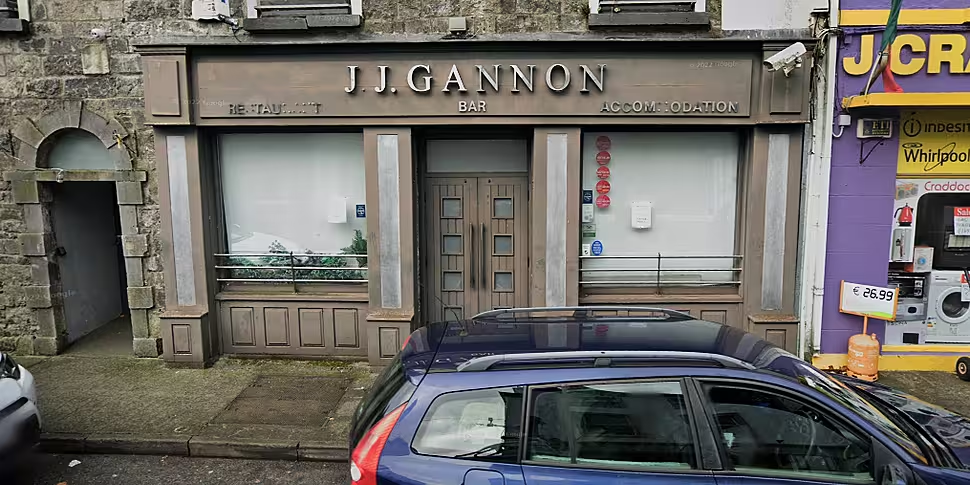The town of Ballinrobe remains a welcoming place, according to a man who joined anti-asylum seeker protests there this weekend.
Yesterday saw a second day of protests in the Mayo town as asylum seekers are set to be moved into a vacant hotel there.
The Department of Integration has said it is planning to move 50 asylum seekers into the building from today.
Protestor Padraig told Newstalk Breakfast the town has already welcomed refugees.
"The people of Ballinrobe are a very welcoming people," he said.
"It's been a tourist town, historically... we've got some beautiful villages around us.
"The things that people don't see out there about Ballinrobe, and it is locals, is that we already have, and very much welcomed refugees to the town in this last year.
"The population of Ballinrobe is growing like every other town - it's gone somewhere from 2,000 to 3,000, that's the overall hinterland of Ballinrobe.
"When you live in the town of Ballinrobe, where the hotel is, there isn't actually many people living on the inside of the town."
'It doesn't have to be asylum seekers'
Padraig said they are concerned that the hotel is close to a creche.
"It's not about the narrative - we're quite aware that Ireland and Ballinrobe isn't full, there's a lot of unused buildings in Ballinrobe," he said.
"This current building... it's 25 feet from a creche.
"The manager of the creche has had nothing but calls from parents that they don't want their children to go into that creche next week.
"It's men [we are protesting against], it doesn't have to be asylum seekers."
He added that there would be a similar reaction "if there was 50 strange Mayo men put into it".
The asylum system
Irish Refugee Council CEO Nick Henderson told the show asylum seekers go through a "very rigorous" identification process in Ireland.
"When somebody applies for asylum in Ireland, they would either do so at the airport or at the International Protection Office in Dublin," he said.
"There commences a very rigorous process which would begin with a person's fingerprints being taken, and those fingerprints go on to a European Union-wide database called Eurodac.
"That is for two reasons - one, to check if they've claimed asylum elsewhere and two, to check if they are on any criminal databases".
Mr Henderson said people are then interviewed that same day before being asked to complete a 20-page questionnaire.
"So, within almost 24 hours or 48 hours of someone arriving in Ireland, the Irish Government would have a very considerable amount of information on somebody already".
Deportations
Responding to listener questions, Mr Henderson said Ireland enforces a relatively low number of deportations.
"Ireland, and this would be same with other European Union countries as well, deports a relatively low number of people who would actually receive a deportation order," he said.
"There's several reasons for that... it can be difficult to get a country which the person has come from to accept the person back.
"Secondly, and this is a big issue in the last few years, in that deportations across Europe and across the world almost stopped when COVID happened."
Mr Henderson added that another reason for a lack of deportations can be because people have built-up "connections to Ireland", including having family here.
According to the latest figures from the Department of Integration, 376 recently arrived asylum seekers are currently without accommodation.
The Department has also reported there are 26,279 international protection applicants with accommodation in the State.









